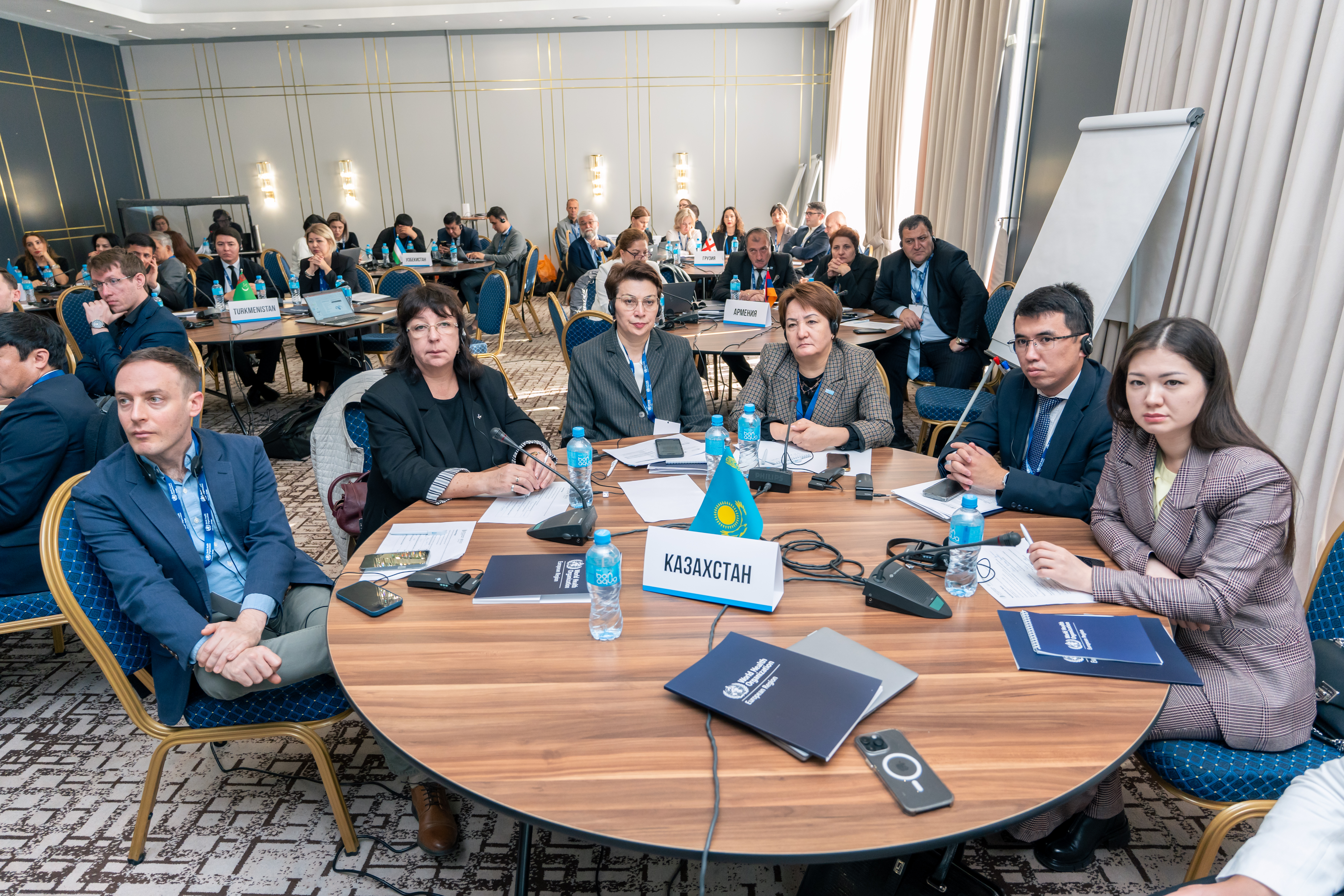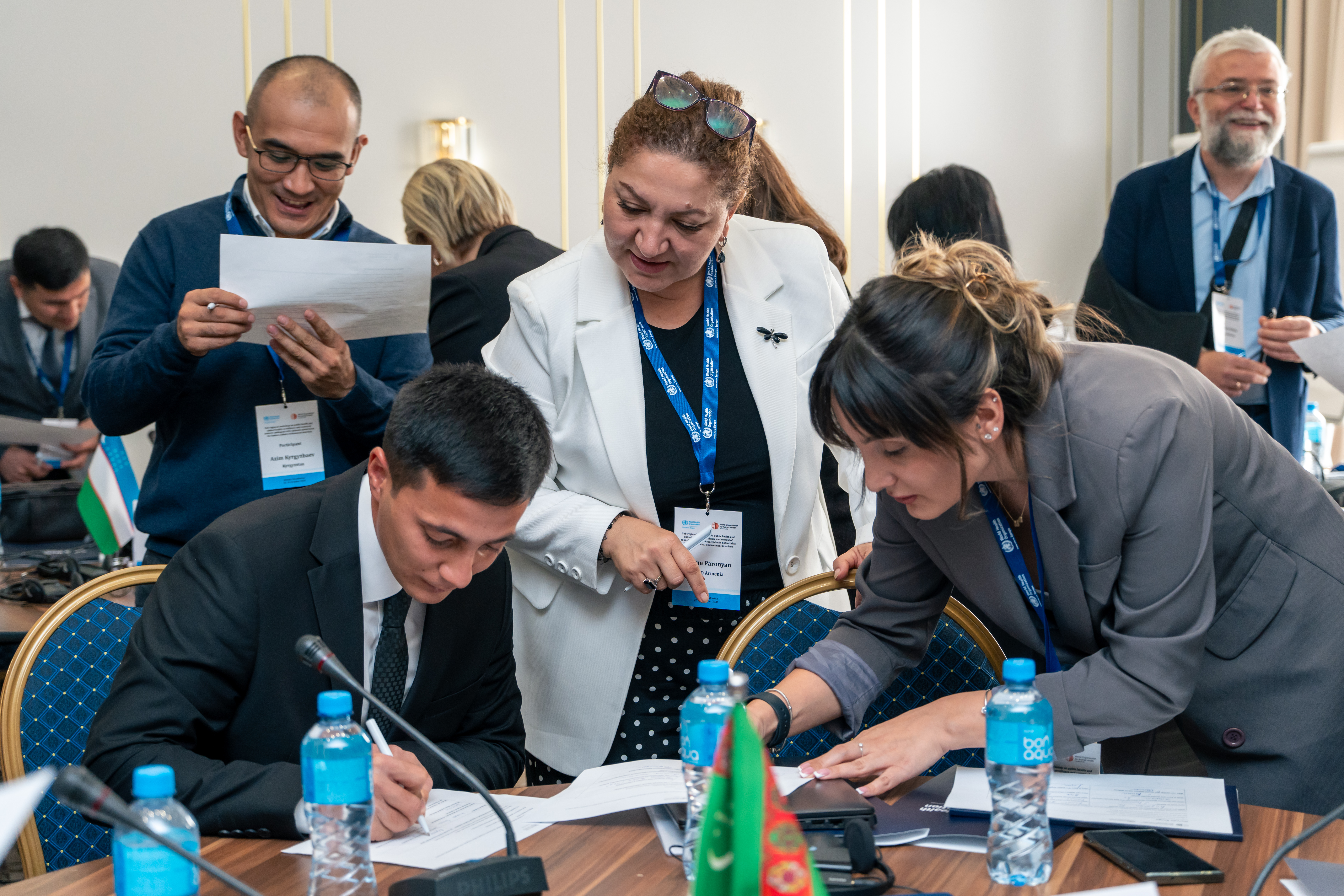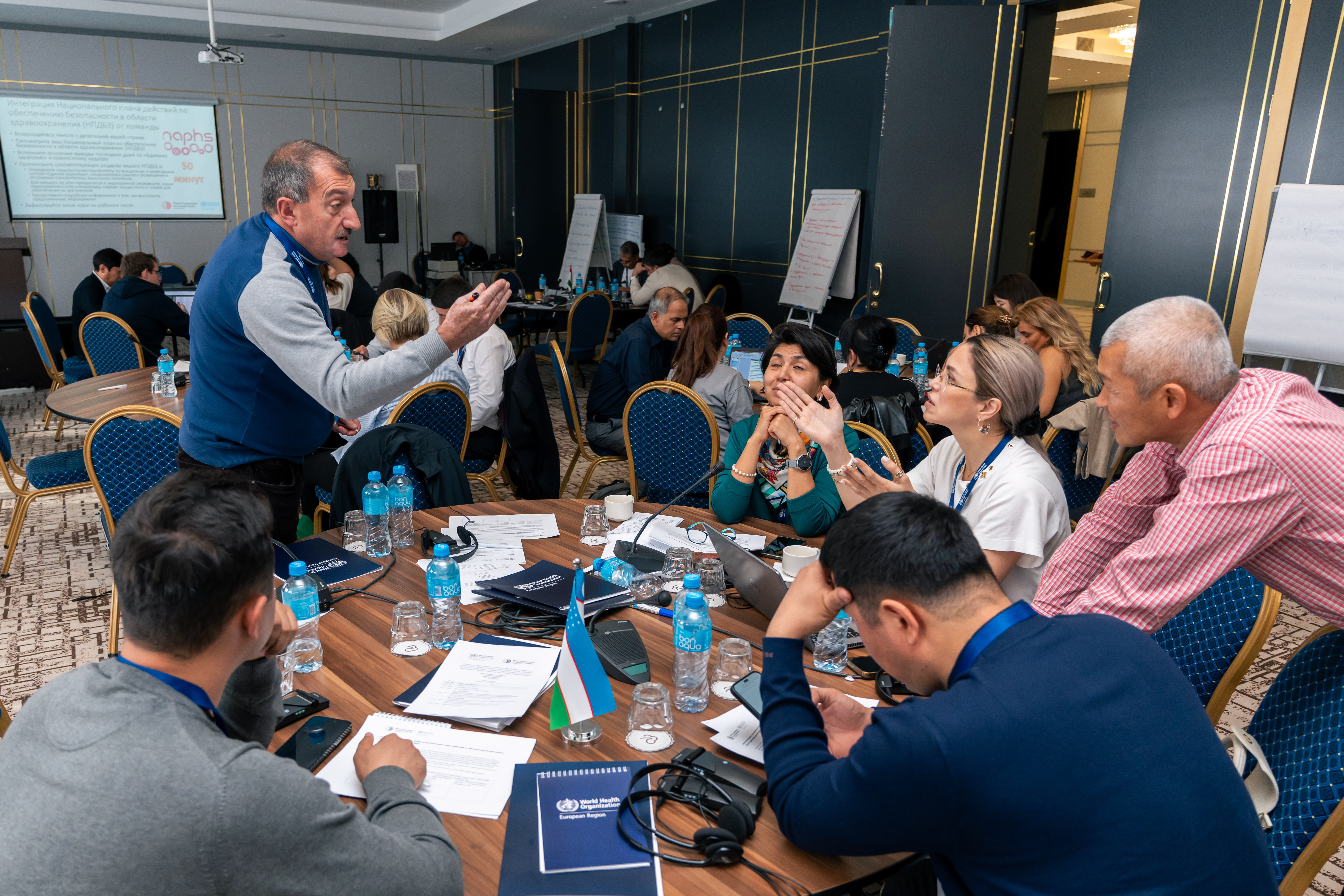In an impactful gathering in Almaty, Kazakhstan, experts and stakeholders convened for a Sub-Regional Workshop on the Surveillance and Control of Zoonotic Pathogens with Epidemic Potential. Held from October 22-24, 2024, the workshop brought together key public health and veterinary professionals from Armenia, Azerbaijan, Georgia, Kazakhstan, Kyrgyzstan, Tajikistan, Turkmenistan, and Uzbekistan to address the urgent need for collaborative responses to zoonotic diseases, those transmissible from animals to humans, with epidemic potential.
Organized by WHO/WOAH in close coordination with Quadripartite partners FAO and UNEP, the workshop facilitated essential dialogues and knowledge sharing aimed at strengthening regional frameworks for public health and animal health. With zoonotic pathogens continuing to pose a global health threat, the workshop emphasized the importance of building resilient systems to proactively manage these risks.
During the workshop, participants focused on:
By the end of the workshop, participants identified actionable steps toward enhancing disease control infrastructure and fostering cross-sectoral partnerships.
This workshop marked a crucial step in building a unified approach to zoonotic disease management in Central Asia and beyond. With continued support from the Quadripartite partners, the region is now better positioned to mitigate future health threats and ensure resilient, prepared public health and veterinary systems.


